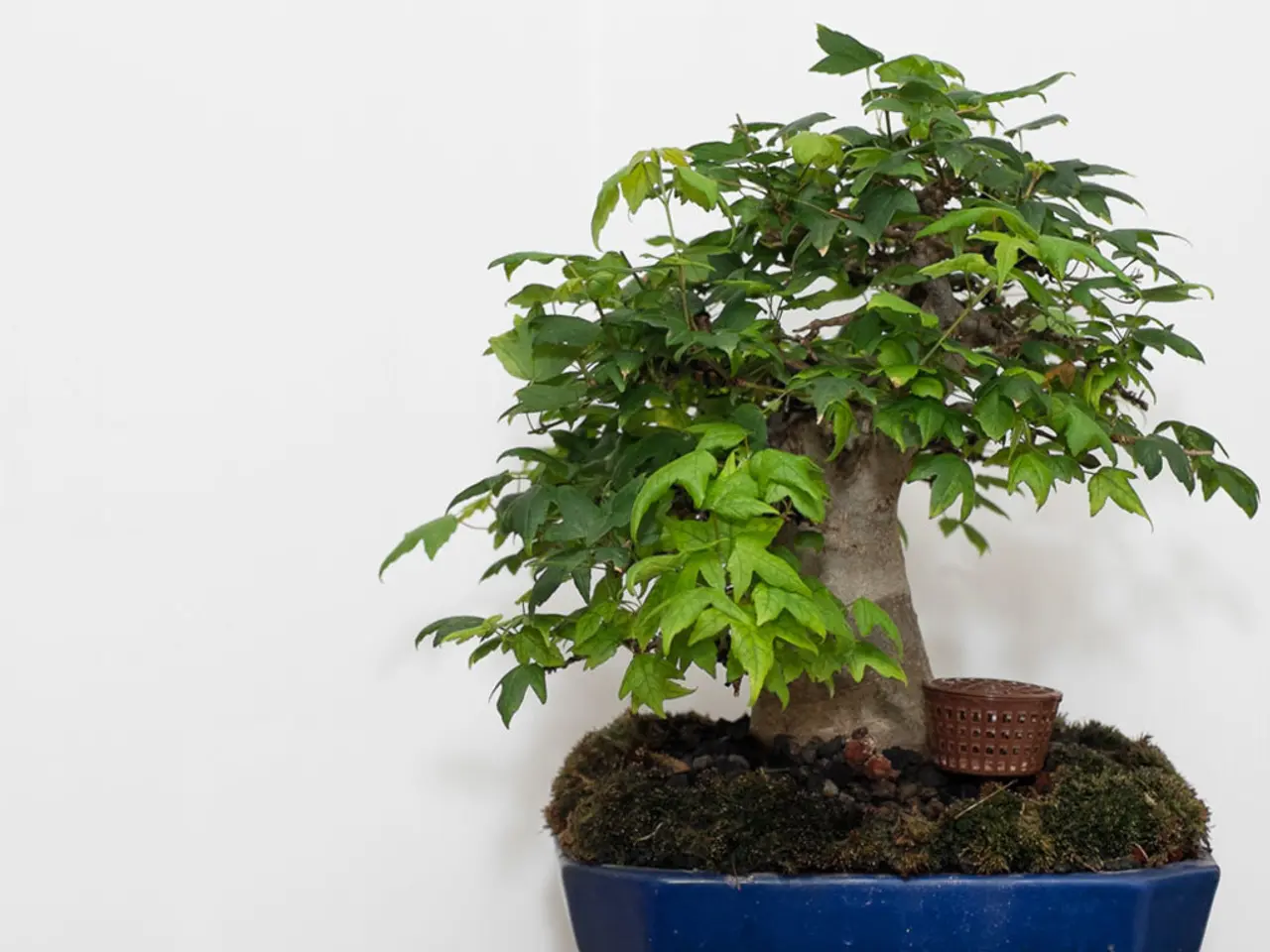Mixed Soil for Bonsai Trees: Effortless Solutions Offering Superior Quality
Bonsai trees, while small in size, require meticulous care to thrive. A well-balanced bonsai soil composition is crucial for ensuring a steady supply of nutrients, ideal moisture levels, and stable pH. In this article, we explore the benefits of pre-mixed bonsai soils and the factors to consider when selecting the perfect blend for your miniature tree.
The Importance of Pre-Mixed Bonsai Soils
Pre-mixed bonsai soils are a popular choice among bonsai enthusiasts due to their balanced properties. These mixes typically include a combination of organic matter like peat moss or coconut coir, perlite or vermiculite, limestone or dolomitic limestone, and micronutrients like iron, zinc, and manganese. Notably, the best pre-mixed bonsai soils often feature mixes with Akadama, lava rock, pumice, turface, and peat moss.
These mixes are preferred because they provide excellent drainage, aeration, and moisture retention that are crucial for healthy bonsai root systems. For instance, the Akadama Lava Pumice Soil Mix is a popular, multipurpose blend combining Akadama (a hard-baked Japanese clay providing moisture retention and structure), lava rock, and pumice. This mix promotes healthy root growth and overall tree vigor, ideal for show-quality bonsai.
Key Benefits of Pre-Mixed Bonsai Soils
- Drainage and Aeration: Drainage and aeration are critical for miniature tree health to prevent root rot and allow oxygen penetration to roots. The combination of components like Akadama and pumice ensures moisture is retained without waterlogging.
- Time-Saving: Ready-to-use blends save time and provide consistent particle size and nutrient retention compared to mixing soils manually.
- Support for Root Pruning and Repotting: These soils support proper root pruning and repotting practices essential for bonsai development.
Choosing the Right Pre-Mixed Soil
While soils heavy in peat or potting soil alone can compact and harm bonsai roots by limiting air flow, mixtures with inorganic components like pumice and lava rock are highly preferred for long-term bonsai cultivation.
Additional specialized soil types like Kanuma (acidic, ideal for azaleas), Kiryuzuna, and other graded soils are also valued for their specific properties, depending on bonsai species requirements.
Factors to Consider
- Understanding the natural environment and watering needs of a bonsai species can provide valuable insights into its soil preferences.
- Local climate plays a significant role in bonsai soil selection, as bonsai trees in hot, dry regions require more water-retentive soils, whereas those in cool, humid areas benefit from well-draining mixes.
- Different species have varying nutrient requirements and pH tolerances, so selecting a pre-mixed soil that provides the necessary nutrients for peak growth is vital. Some species require well-draining soil, while others prefer more moisture-retentive mixes.
- The frequency of repotting a bonsai tree in pre-mixed soil depends on factors such as species, growth rate, and pot size, but generally, most bonsai trees require repotting every 2-5 years to maintain ideal health and root development.
Tailoring the Soil to Your Tree's Needs
Tailoring a pre-mixed bonsai soil to a tree's unique requirements is achievable, but it should be done with caution, by judiciously supplementing or subtracting specific ingredients to ensure a harmonious balance that caters to the tree's distinct needs.
Selecting a Reputable Brand
Choosing a reputable brand for pre-mixed bonsai soil is crucial, as reputable brands have invested time and expertise in formulating soil mixes that cater to the specific requirements of bonsai trees.
Bonsai Soil and the Environment
Achieving a balanced environment requires careful consideration of various factors beyond the soil itself, including water, light, temperature, and humidity. Reading labels and certifications is essential for selecting the perfect pre-mixed bonsai soil, as labels provide valuable insights into the product's composition, quality, and performance.
In summary, pre-mixed bonsai soils with Akadama, lava, pumice, and turface are highly regarded for their balance of water retention, drainage, and aeration, which are fundamental for the health and growth of miniature bonsai trees. By understanding your tree's unique needs and selecting a high-quality pre-mixed soil, you can provide the ideal foundation for your bonsai's growth and development.
- Beyond pre-mixed bonsai soils, a well-balanced lifestyle for hobbyists includes exploring other interests such as fashion-and-beauty, food-and-drink, home-and-garden, pets, travel, cars, and shopping.
- While reading labels and certifications plays an important role in selecting the perfect pre-mixed bonsai soil, a similar practice is recommended when purchasing fashion products to ensure they meet ethical and environmental standards.
- In the same way that Akadama, lava rock, pumice, and turface promote healthy root growth in bonsai trees, using high-quality ingredients and occasional pruning can foster vibrant and strong pet fur.
- Prudent decisions when selecting, repotting, and tailoring a pre-mixed bonsai soil enhance the tree's growth, just as well-planned shopping trips and understanding one's needs serve to maximize satisfaction with purchased items, creating an enjoyable lifestyle.






